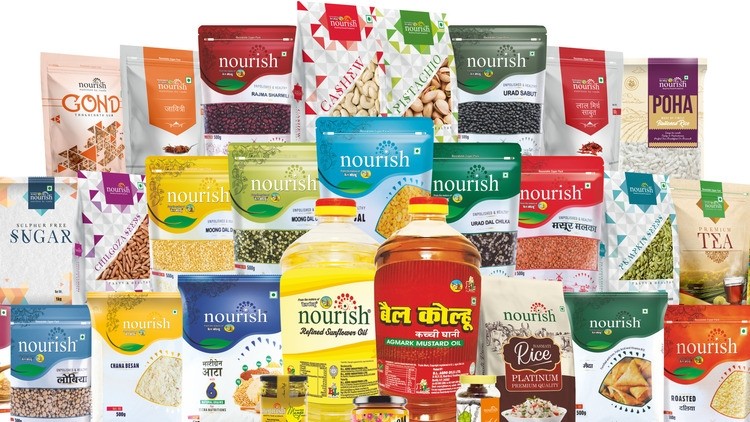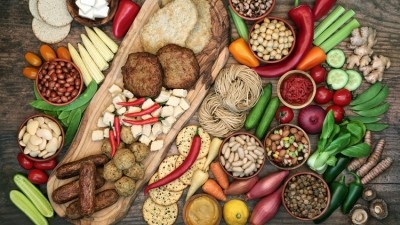Cementing success: New plant will see Indian oil giant B. L. Agro Industries vastly boost output

MD Ashish Khandelwal said the firm aims to multiply its output to 900 metric tonnes, with the operations of its second plant starting mid-September 2022. The output is almost a 10-fold jump from 100 metric tonnes daily at its current sole plant in Bareilly, Uttar Pradesh (northern India).
The second plant is located 100 metres away from the first plant and is fully automated. It has a floor space of 10,000 square metres, costing the firm around 150 crores (US$18.8m) to build. Supporting the second plant is a new warehouse facility that costs another 50 crores (US$6.2m).
The firm also intends to open a brewery, around 500 metres from the first plant, to manufacture different canned beers made of barley and wheat. The brewery could first produce 400 to 1,000 litres or 400,000 cans at 180 turns per day (TPD). However, the firm hopes to catapult it to 800,000 cans by 2026.
“We will increase our manpower for marketing by 50%. In the next few months, we will start with a 30% increase to cover more shops in India. COVID-19 has delayed certain aspects, like machine delivery. Hence, we want to stabilise everything we currently have and cater to the existing consumers,” said Khandelwal.
Beginnings
Established in the 1940s, B. L. Agro Industries manufactured, packaged and marketed edible oils to consumers. Its signature oil is the ‘bail kolhu’ or mustard oil made of Rajasthani mustard. It also produces other oils, like rice bran derived from Haryana, Punjab, Uttarakhand and Uttar Pradesh itself; sunflower; soybean; canola; maize; and groundnut. In August 2019, the firm established a subsidiary called Nourish, which features food products like rice flour, sugar, nuts and lentils.
Overall, the food giant has 20 oil and 160 food SKUs distributed to 120,000 retailers across 200 cities in India. About 5% of the retailers comprise supermarkets; the balance 95% are convenience stores and shops called “kirana shops” (similar to mom-and-pop stores and make up the majority of retail outlets in the country). It also has an e-commerce platform. The pricing ranges from 30 rupees (US$0.40) per kilogramme for wheat flour to 7,500 rupees per kilogramme for specific spices (US$94).
To support its business, the firm has built packaging facilities, oil refineries, laboratories and warehousing capability reaching 48,000 tonnes. It has also built its rail siding to transport crude oil to the warehouse directly. The siding unit is equipped with an automatic fractionation plant.
“Compared to the COVID-19 era, the oil prices did not increase much, but food products like flour, spices and pulses have drastically shot up in the last three months. For Nourish, it is still a new brand, and we need to educate people about it. We hope to achieve 5,000 crores (US$630,000) by end-2022 and 6,000 to 7,000 crore (US$755,000 to US$880,900) by end-2023,” said Khandelwal.
Climate woes
Due to climate change, the ingredient sector is prone to disturbances. For instance, Khandelwal said the products gain moisture during rainy seasons, whereas it loses moisture in summers. The continuous demand requires the firm to maintain the quality of products despite the varying ingredients consistently.
Climate change has triggered droughts in states like Uttar Pradesh, where the company itself is based and the residence of 25% of the total Indian population, West Bengal, and Jammu and Kashmir. In contrast, heavy rains slammed locations like Maharashtra, Gujarat, Madhya Pradesh, Tamil Nadu and Kerala.
“Since we target an output of 900 metric tonnes daily, we need 1,200 metric tonnes of ingredients. But the procurement of quality ingredients is tough and poses a huge challenge due to climate change and its differences pan-India. By 2023, there will be issues with products and produce quality, and a shortage of rice and wheat. There has also been an export of our buffer wheat stock due to the Russia-Ukraine war. Our buffer stock has been low the past few years, and we should be expecting a shortage in Q1 2023 for the whole of India,” he said.
Concluding the interview, he said the firm is keenly monitoring the situation in India but remains hopeful for the future of food in the country.
“After COVID-19 struck, people started to eat healthier. This trend helped us produce our SKUs. When we started Nourish in 2019, it earned 1 crore (US$126,000). In 2022, it is earning up to 400 crores (US$50.3m). My hopes are high, and I will reach my objectives,” he said.
Proteins, probiotics and healthy ageing are major focus areas of our upcoming Growth Asia Summit in Singapore from 11 to 13 October. Check out big-name brands, international experts and pioneering start-ups slated to present here.























